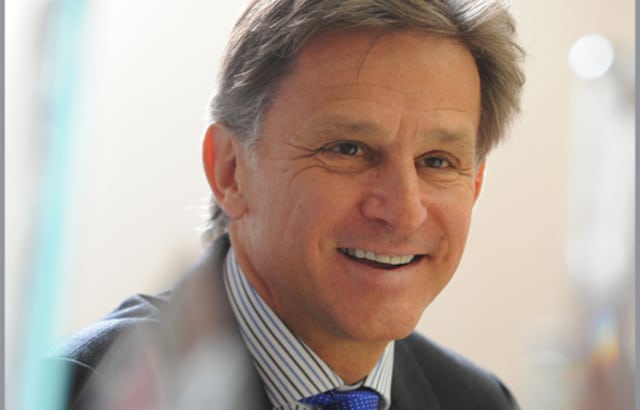The asset manager announced on Monday that from 1 January 2018, it will bear the cost of “all core waterfront written research consumed by its managers” to comply with incoming Mifid II regulation.
However, it said it was still in late stage discussions to determine whether it would be footing the research bill for certain funds, which require “specialised research” for their investment process.
“We have undertaken a lengthy and detailed consultation process both internally and externally,” said chief executive Gavin Rochussen (pictured).
“As a specialist active manager, certain of our strategies also rely on very specialised research that can be critical in helping our managers deliver alpha. Polar Capital is in late stage discussions with these funds to pay or contribute to such costs.”
Meanwhile, Rochussen has continued to ramp up his restructuring efforts.
Although he noted that “fund performance has improved” in the nine months to 30 September 2017, he said the firm would be shifting its focus to more diversified products and client segments.
“While the ethos and philosophy of Polar will not change, there will be a strategic focus on diversification of fund strategies, client segments and client geography,” he said.
Within the last several weeks, Polar Capital has already shut two of its smaller funds that were lagging well behind peers in their respective sectors.
Rochussen also hinted the firm would continue its recruitment drive, looking for “top-performing investment talent to manage funds that will complement the existing strategies”.
The updates accompanied its unaudited interim results, which showed its assets under management (AUM) climbing 14% to £10.6bn at the end of September. As at the end of November, AUM stood at £11.4bn.
Until recently, the asset manager has seen wide swathes of redemptions, resulting in three consecutive years of net outflows.
Polar Capital’s technology funds were the main drivers of AUM growth, generating £2.61bn in net flows, a 24.6% increase year-on-year.
Its Japan fund, originally the main culprit behind its high level of outflows, brought in £1bn of client money, making it the fifth most popular strategy over the period, behind North America, (£1.82bn), healthcare (£1.62bn) and financials (£1.53bn).
On the other side of the spectrum, Global Alpha was the least popular of Polar Capital’s strategies, attracting just £110m. Its Europe and UK-based strategies were also losers in terms of fund flows.
Polar Capital’s profit before tax increased 38% to £11.8m, while basic earnings per share rose to 10.19p from 6.68p the year before, it reported.











